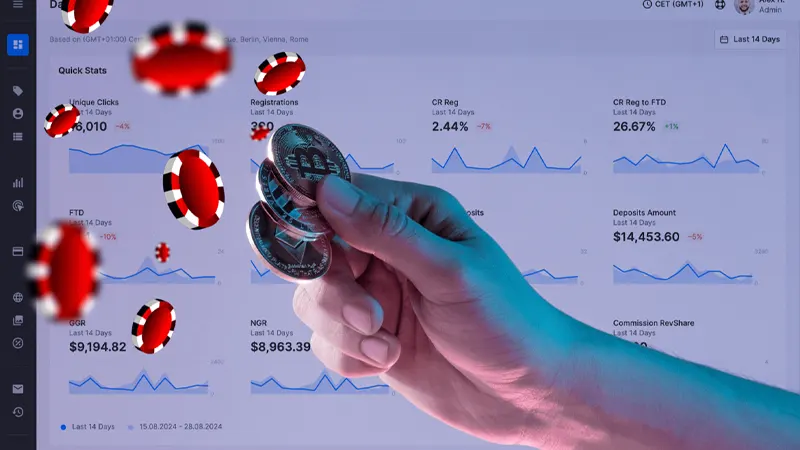The online casino industry has long grappled with trust issues that fundamentally affect player confidence. Many online casinos face allegations of fraud and result manipulation, creating an environment where players lack the necessary tools to verify game outcomes independently. This absence of transparency has fostered widespread skepticism about the fairness of digital gambling platforms.
The emergence of blockchain technology represents a revolutionary solution to these longstanding transparency concerns. By offering immutable, verifiable records of all gaming activities, blockchain provides the technological foundation for building genuine trust between casinos and their players.
Understanding Blockchain: Why It Matters for Online Casinos
Blockchain technology operates as a distributed ledger system where data is stored across multiple nodes, making it virtually impossible to alter or delete information once recorded. This decentralized approach ensures that no single entity can manipulate stored data without detection.
The key characteristics that make blockchain particularly relevant to online casinos include complete transparency, immutability of records, and full traceability of all transactions. In the context of online gambling, blockchain can record betting outcomes, deposit and withdrawal transactions, and bonus distributions with unprecedented accuracy and verifiability.
This technology transforms the traditional casino model from a closed system where operators hold all the cards to an open ecosystem where players can independently verify the fairness of their gaming experience.
Transparency Gaps in Traditional Online Casinos
Traditional online casinos operate through centralized server systems where game outcomes are determined by proprietary algorithms that players cannot inspect or verify. This black-box approach means players must trust the casino’s claims about fairness without any independent verification mechanism.
Financial transactions, including prize pools and monetary exchanges, remain completely opaque to players. Only the casino operators have access to comprehensive financial data, leaving players in the dark about the true state of gaming funds and payout mechanisms.

When disputes arise, players face significant challenges in proving casino manipulation or unfair practices. The lack of transparent, independently verifiable records makes it nearly impossible for players to build compelling cases against potentially fraudulent operators.
How Blockchain Enhances Casino Transparency
1. Provably Fair Gaming – Verifiable Results
Blockchain-based casinos implement “provably fair” systems where each bet generates a unique “seed” or random code that players can independently verify. This mechanism ensures that game outcomes are genuinely random and cannot be manipulated after the fact.
The transparency extends beyond just claiming fairness to providing mathematical proof of fair play. Players receive the tools and information necessary to verify that their game results were generated fairly and remain unchanged after publication.
2. Public Blockchain Transactions
All deposit, withdrawal, and prize distribution transactions are recorded on the blockchain, creating a permanent, publicly accessible ledger. Players can verify their transaction history by checking specific block numbers, wallet addresses, and transaction timestamps.
This public record system eliminates the information asymmetry that traditionally exists between casinos and players, providing unprecedented transparency into all financial movements.

3. Immutable Result Records
Once a block is confirmed on the blockchain, the contained results and transactions become permanently fixed and cannot be altered by anyone, including the casino operators. This immutability provides players with confidence that their gaming history remains intact and unmanipulated.
The permanent nature of blockchain records means that casinos cannot secretly modify past results or financial data, creating a trustworthy historical record of all gaming activities.
4. Enhanced Player Trust
Rather than relying solely on casino promises and marketing claims, players can independently verify the fairness and transparency of their gaming experience. This shift from trust-based to verification-based gaming represents a fundamental improvement in player-casino relationships.
Transparent casinos that embrace blockchain technology tend to attract more dedicated long-term players who value the ability to verify their gaming experience independently.
Blockchain-Powered Casino Operations
Blockchain-enabled casinos utilize the technology as an “open ledger” that records all game results and financial transactions. Smart contracts and digital wallets manage prize distributions and payments automatically, reducing the need for manual intervention and potential manipulation.
These casinos typically support various cryptocurrency options, including proprietary tokens, USDT, ETH, and BTC, providing players with flexible payment methods while maintaining complete transaction transparency.
The integration of blockchain technology creates a more automated, transparent, and trustworthy gaming environment that benefits both operators and players.
Real-World Applications: Benefits and Limitations
Benefits Blockchain Delivers
Blockchain technology successfully addresses result transparency concerns by providing verifiable proof of fair play. The public nature of blockchain records also reduces suspicion about prize pool management and financial operations.

Current Limitations
Despite its advantages, blockchain technology remains complex for average players who may not understand how to verify seeds, hashes, or transaction records. Additionally, blockchain networks often involve gas fees and slower transaction speeds compared to traditional payment methods.
Some casino games still rely on off-chain servers for certain functions, which can limit the complete transparency that pure blockchain implementation would provide.
82 Lottery’s Experience: Transparency as a Survival Factor
82 Lottery has adopted a strict policy of partnering only with providers that offer genuinely provably fair systems. The platform actively supports players by providing guidance on how to verify seeds and hash results from their gaming sessions.
The company invests in ongoing customer service training to ensure support staff can explain blockchain technology concepts clearly and accessibly. This educational approach helps bridge the knowledge gap between complex technology and practical player understanding.
82 Lottery’s commitment to transparency extends beyond mere technical implementation to include comprehensive player education and support.
Player Empowerment: How to Verify Casino Transparency
Players can take several concrete steps to verify the transparency of their chosen casino platforms. Learning to check game seeds and hash values provides direct verification of individual bet fairness. Monitoring deposit and withdrawal transactions through blockchain explorers offers transparency into financial operations.

Examining casino wallet addresses and prize pool activities through public blockchain records provides insight into the platform’s financial health and operations. Reading casino whitepapers and provably fair documentation helps players understand the specific mechanisms used to ensure fairness.
Recommendations from 82 Lottery
Players should prioritize casinos that implement genuine blockchain technology or at minimum offer provably fair gaming systems. Preference should be given to platforms that publicly disclose their wallet addresses, smart contracts, and prize pool reports.
However, players must remain vigilant about casinos that use “blockchain” merely as a marketing term without implementing genuine transparency measures. True blockchain integration requires verifiable, publicly accessible records of all gaming activities.
Building Trust Through Technology: The Future of Fair Gaming
Blockchain technology represents a significant step forward in making online casinos more transparent and trustworthy, giving players unprecedented confidence in their gaming experience. However, technology alone cannot replace the fundamental responsibility of players to remain informed and vigilant about their chosen platforms.
The integration of blockchain with robust player account security measures creates a comprehensive approach to safe online gambling. 82 Lottery remains committed to supporting players through education, technological transparency, and ongoing guidance that empowers individuals to protect themselves in the digital gaming environment.
As the industry continues to evolve, the combination of blockchain transparency and educated player participation will define the future of trustworthy online gambling. The goal is not just technological advancement but the creation of a gaming ecosystem where trust is earned through verifiable actions rather than marketing promises.


